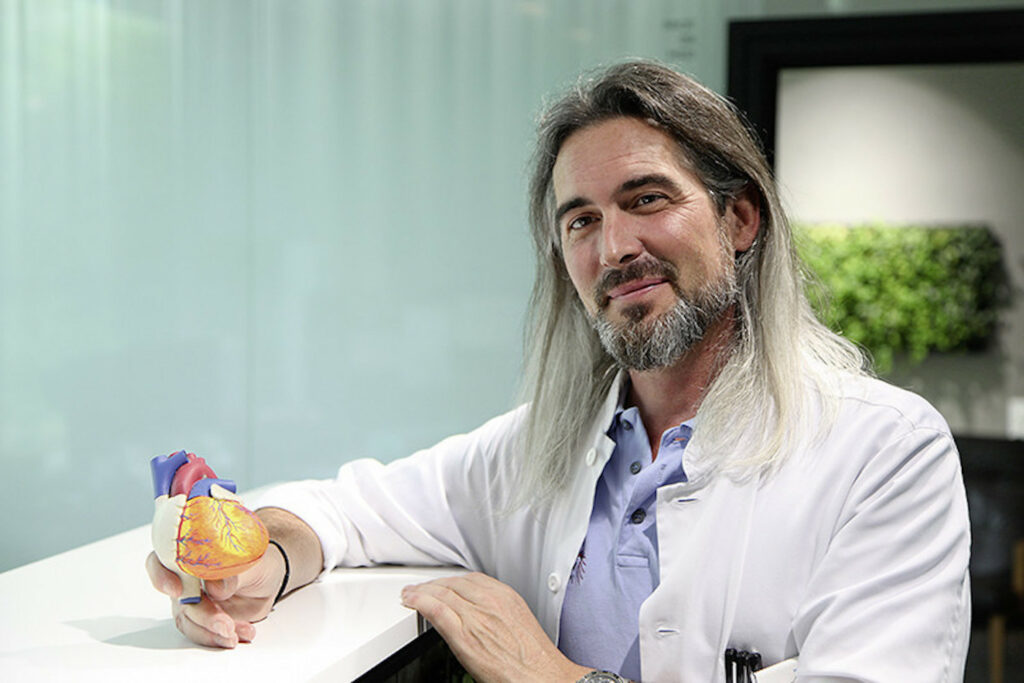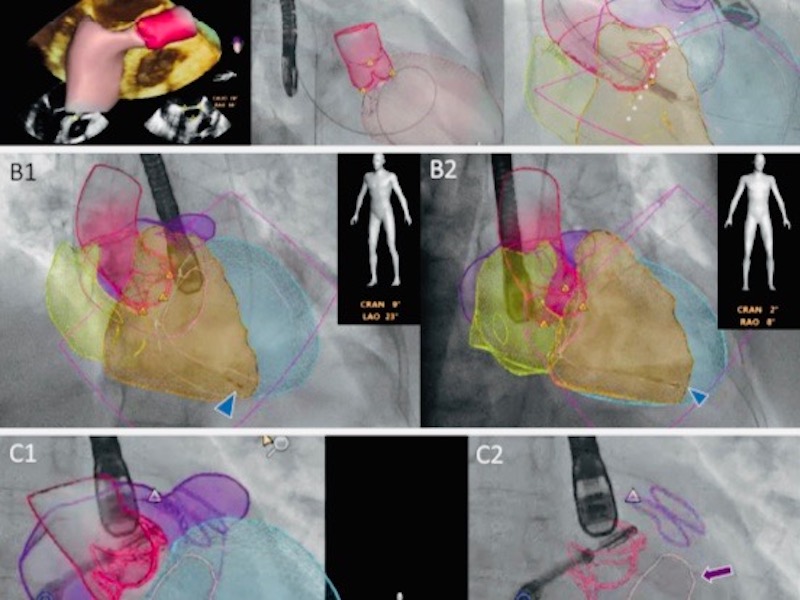The 10 Commandments for the Heart
01 October 2021

Heart specialist Prof. Wyss recommends service care for those aged 40 and over
From 40 at the latest, every heart needs a service. Cardiologist Prof. Dr. Christophe Wyss says how to keep cardiovascular diseases at bay and your heart healthy into old age.
The pistons and cylinders of the engine correspond to the ventricles and the heart muscle
Service-maintained cars live longer. So do service-maintained hearts. "Everything has to work together smoothly in the engine, and the same applies to the heart," says cardiology professor Dr. Christophe Wyss from HerzKlinik Hirslanden in Zurich. "What the fuel line is for the combustion engine, the vessels are for the heart. They must not become clogged. The valves in the engine correspond to the valves in the heart. They must open rhythmically and close tightly again. The electrical system in the car controls the impulses from the spark plugs for smooth combustion in the engine. In the heart, it is the impulse conduction system and the generation of excitation. And finally, the pistons and cylinders of the engine correspond to the heart chambers along with the actual heart muscle."
10 most important service tips
During the cardiac service, the cardiologist checks whether the heart is working without restrictions. Malfunctions, wear and tear and disturbances must be detected and - where possible - remedied. Prof. Dr. Christophe Wyss recommends a regular heart check. These are his 10 most important service tips.
Strain the heart
Move regularly instead of just sitting. A car engine that sits unused in the garage breaks down. So does a heart that only turns in neutral.
Get enough sleep, reduce stress
Sleep deprivation stresses. Stress drives up adrenaline. This in turn stresses the vessels, promotes arteriosclerosis, can upset the electrical system and ultimately damage the heart.
Lower blood pressure
When a combustion engine is loaded, the oil pressure increases. Likewise, the blood pressure in the body also rises under load. If, on the other hand, it is high even without load, help is needed.
Adjust cholesterol
The body produces most of the cholesterol itself to form cell walls, bile acid, vitamin D and hormones. Good cholesterol keeps the blood vessels open, while bad cholesterol is deposited in the blood vessels. Anyone who has too much bad cholesterol despite regular exercise and a healthy diet or because of a genetic predisposition needs medication.
Take unsaturated fats
Eat fish twice a week, once especially fatty, because it contains valuable unsaturated fatty acids. Certain omega-3 fatty acids, potassium, vitamin K2, magnesium, selenium, folic acid, niacin and also the co-enzyme Q10 can promote heart health, according to studies.
Do not smoke
The toxins in cigarette smoke destroy the vascular system and increase the risk of a heart attack. Oxidised cholesterol particles are deposited on the walls of the blood vessels, activate inflammatory processes and promote arteriosclerosis. Smoking and high cholesterol levels together increase the danger.
Eat less sugar
After years of constant bombardment with too much sugar, either the pancreas eventually fails or the muscle cells lose the ability to absorb the sugar from the blood. If left untreated, diabetes damages the blood vessels, leads to dangerous deposits and ultimately threatens the heart.
Alcohol with moderation
Moderate alcohol consumption does not harm a healthy heart. However, one should be careful with secondary diseases such as high blood pressure and diabetes.
Reduce overweight
Weight itself is not the killer, but the secondary diseases that result from being overweight are.
Recognise alarm signs
In the event of a stuttering engine, misfiring or other problems, the car must be shown to the mechanic, even if the last service has just been carried out. The same applies to the heart: suspicious symptoms such as shortness of breath, palpitations, chest pains or similar should be assessed by a doctor and clarified at an early stage.
Source: doktorstutz.ch
More reports
New clip procedure on the tricuspid valve
Switzerland's first use of a new clip procedure on the tricuspid valve On February 20, 2018, a team from HerzKlinik Hirslanden in...
Every heart loves movement
Interview with Prof. Christophe Wyss, MD Many factors influence heart health. Cardiologists agree: sport and exercise do...
Cardiac imaging with echocardiography and fluoroscopy (Heart Imaging)
Automated anatomical intelligence: next-generation fusion imaging in structural cardiac interventions Cardiac teams performing structural cardiac interventions face particular imaging difficulties,...
Modern interventional cardiology
Interventional cardiology (also: invasive cardiology) refers to diagnostic and therapeutic cardiac interventions that can be performed using catheters. Interventional...
TAVI catheter for aortic valve replacement
Aortic valve replacement: surgical or catheter-based using TAVI Once developed for high-risk patients, this method of aortic valve replacement is increasingly being used in patients with...
Heart attack - Yes or No?
Chest pain has different causes, but what they all have in common is that they frighten the sufferer. Although up to 90% of the symptoms can be...
All specialists at the Heart Valve Center of Herzklinik Hirslanden
Prof. Dr. med. ROBERTO CORTI
Interventional Cardiology
Prof. Dr. med. JÜRG GRÜNENFELDER
Cardiac Surgery
MD. THIERRY AYMARD
Cardiac Surgery
PD Dr. med. PATRIC BIAGGI
Cardiology | Imaging
Prof. Dr. med. OLIVER GÄMPERLI
Interventional Cardiology
PD Dr. med. DAVID HÜRLIMANN
Cardiology | Rhythmology
Dr. med. IOANNIS KAPOS
Cardiology | Imaging
MD. SILKE WÖRNER
Cardiology | Imaging
Prof. Dr. med. GEORG NOLL
Cardiology | Prevention
MD. IVANO REHO
Cardiology | Aortic Aneurysm
PD Dr. med. (H) DIANA RESER
Cardiac Surgery
Prof. Dr. med. JAN STEFFEL
Cardiology | Rhythmology
Prof. Dr. med. PETER M. WENAWESER
Interventional Cardiology
Prof. Dr. med. CHRISTOPHE WYSS
Interventional Cardiology




